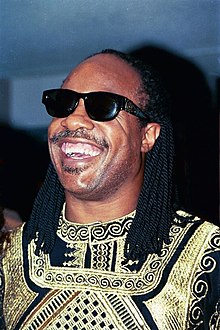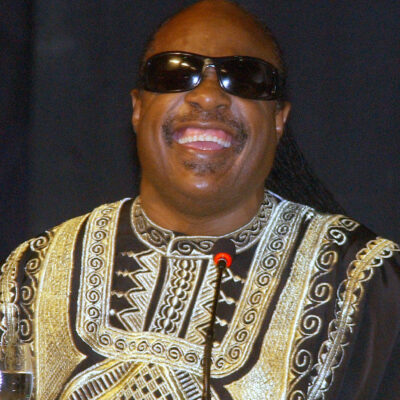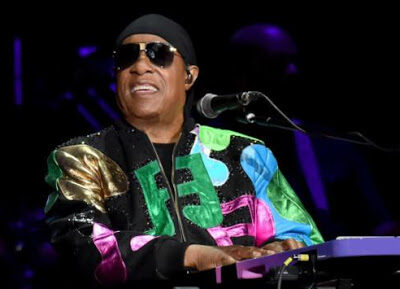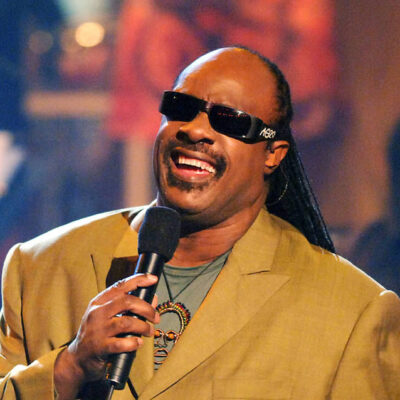STEVIE WONDER – EN
Stevie Wonder
Wonder was born: Stevland Hardaway Judkins or Steveland Morris on May 13, 1950, in Saginaw, Michigan. He was born six weeks early with retinopathy of prematurity, an eye disorder which was exacerbated when he received too much oxygen in an incubator, leading to blindness.
Stevie Wonder is an American musician and a former child prodigy who became one of the most creative musical figures of the 20th century with hits like “My Cherie Amour,” “You Are the Sunshine of My Life” and “Superstition.”
Wonder showed an early gift for music, first with a church choir in Detroit, Michigan, where he and his family had moved to when he was four years old, and later with a range of instruments, including the harmonica, piano and drums, all of which he taught himself before age 10.
Blind from birth and raised in inner-city Detroit, he was a skilled musician by age eight. Renamed Little Stevie Wonder by Berry Gordy, Jr., the president of Motown Records—to whom he was introduced by Ronnie White, a member of the Miracles—Wonder made his recording debut at age 12.
Becoming a 1960s force to be reckoned with via chart hits like “Fingertips, Pt. 2,” “I Was Made to Love Her” and “My Cherie Amour.” Over the next decade, Wonder had an array of No. 1 songs on the pop and R&B charts, including “Superstition,” “You Are the Sunshine of My Life” and “Higher Ground.” He continued to churn out hits into the 1980s, including “I Just Called to Say I Love You” and “Part-Time Lover.”
The soulful quality of his high-pitched singing and the frantic harmonica playing that characterized his early recordings were evident in his first hit single, “Fingertips (Part 2),” recorded during a show at Chicago’s Regal Theatre in 1963. But Wonder was much more than a freakish prepubescent imitation of Ray Charles, as audiences discovered when he demonstrated his prowess with piano, organ, harmonica, and drums. By 1964 he was no longer described as “Little,” and two years later his fervent delivery of the pounding soul of “Uptight (Everything’s Alright),” which he also had written, suggested the emergence of both an unusually compelling performer and a composer to rival Motown’s stable of skilled songwriters. (He had already cowritten, with Smokey Robinson, “The Tears of a Clown.”)
Wonder was the recipient of numerous honours. He was inducted into the Rock and Roll Hall of Fame in 1989, and in 1999 he was awarded the Polar Music Prize for lifetime achievement by the Royal Swedish Academy of Music. That year he also became a Kennedy Center honoree. In 2005 Wonder received a Grammy Award for lifetime achievement. Four years later he was awarded the Gershwin Prize for Popular Song from the Library of Congress, and he received the Presidential Medal of Freedom in 2014.














